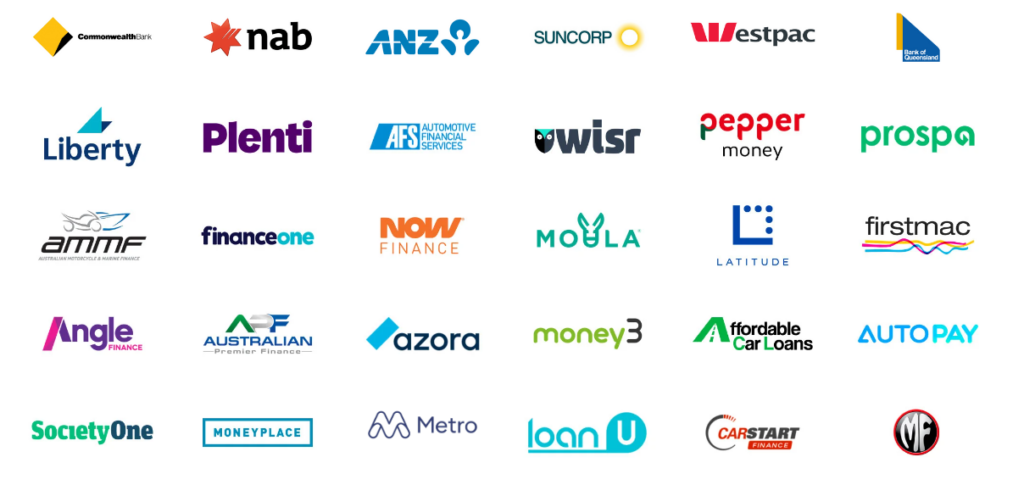Pre-Approved Loans: What Are They and How Do They Benefit You?
June 16, 2025
Did you know 3 in 5 Australian home buyers miss out on their dream property because they lack financial clarity? With property prices shifting faster than Melbourne’s weather, knowing your borrowing power upfront could mean the difference between securing a home or watching it slip away.
Conditional approval, often called pre-approval, acts like a financial compass for your property search. It gives you a clear borrowing limit after a lender reviews your finances, helping you shop with confidence. While not a guaranteed loan, this step shows real estate agents and sellers you’re serious—and ready to move quickly.
Tow Finance Solutions helps Australians nationwide navigate this process smoothly. Unlike vague estimates, conditional approval pinpoints what you can realistically afford. This knowledge strengthens your position when bidding, especially in competitive markets like Sydney or Brisbane where timing matters.
Key Takeaways
- Conditional approval shows your maximum borrowing capacity
- Strengthens your negotiating power with sellers
- Reduces delays during the property purchase process
- Helps identify budget-friendly suburbs upfront
- Valid for 3-6 months in most cases
Find The Best Deal

With over 10 years of industry experience we are a leading independent broker with a diverse panel of 40 + lenders to find you the best solution, tailored to you and your goals!
Understanding Pre-Approved Loans
Many buyers overlook a crucial step that could save them time and stress: understanding their borrowing limits upfront. This knowledge shapes your entire property search, letting you focus on realistic options while avoiding financial overreach.
What Is Conditional Approval?
A conditional home loan approval acts like a personalised financial map. Lenders assess your income, expenses, and credit history to determine your borrowing capacity. You receive a maximum amount you could borrow, valid for 3-6 months..
Two Stages of Lender Assessment
Conditional approval comes first, requiring no specific property. It confirms your eligibility based on current finances. Unconditional approval happens later, when you’ve chosen a home. Here’s how they differ:
- Timing: Conditional starts your journey; final approval ends it
- Checks: Initial review vs property valuation and final verification
- Certainty: “In principle” agreement vs binding contract
Your lender updates their assessment at each stage. Major financial changes between approvals could affect your eligibility. Always confirm requirements with your chosen institution before making offers.
Benefits of Pre-Approved Loans
Searching for property without knowing your financial limits is like house-hunting blindfolded. Early financial groundwork helps you avoid overcommitment while streamlining your entire purchasing journey.
Speed Meets Certainty
Completing financial checks upfront cuts weeks off final approvals. Lenders verify your income, expenses, and credit history during pre-approval. This means less paperwork later when you find your ideal home.
Knowing your exact budget transforms property searches. You’ll filter listings effectively, avoiding emotional attachments to homes beyond your reach. Real estate agents also prioritise buyers with verified finances.
Factor | With Pre-Approval | Without Pre-Approval |
Processing Time | 2-5 business days | 3+ weeks |
Negotiation Power | Stronger position | Risk of rejection |
Budget Clarity | Exact limit known | Estimates only |
Stand Out in Competitive Markets
Sellers favour buyers who demonstrate financial readiness. In Sydney’s auction rooms or Melbourne’s suburban markets, pre-approval signals seriousness. It often becomes the tie-breaker between similar offers.
Your confidence grows when bidding within verified limits. There’s no second-guessing affordability or scrambling for last-minute checks. This assurance helps you act decisively when properties move quickly.
How Pre-Approval Simplifies Buying Journey
Getting conditional approval first turns confusion into clear direction. It acts like a financial blueprint, letting you focus on realistic options while avoiding heartbreak over unaffordable properties.
Establishing Your Borrowing Capacity
Lenders calculate your maximum loan amount by checking income, debts, and savings. This process reveals your true financial position. You’ll see exactly what you can borrow for your home loan, removing guesswork from budget planning.
Knowing your limit helps filter property listings effectively. You’ll avoid weekend inspections for homes outside your range. This focus saves hours and reduces decision fatigue during your search.
Enhancing Your Property Search
Real estate agents prioritise buyers with verified finances. Your pre-approval status makes sellers take offers seriously, especially at auctions. This advantage matters in competitive markets like Perth or Adelaide.
Factor | With Pre-Approval | Without Pre-Approval |
Budget Focus | Targeted property searches | Random inspections |
Time Spent | Efficient viewings | Wasted trips |
Negotiation Strength | Firm offers accepted faster | Delayed responses |
Acting quickly becomes easier when you find the right home. No waiting for financial checks means placing offers immediately. This speed often beats competing buyers still seeking loan approvals.
When to Apply for Pre-Approval
Ever wondered why some buyers move faster than others in hot property markets? Timing your financial preparations could be the difference between securing your home and watching it sell elsewhere. Getting your paperwork ready at the right moment keeps your options open without locking you into deadlines.
Timing in the Home Buying Process
Apply for pre-approval when you’re 60-90 days from serious property hunting. This window balances urgency with flexibility. Most approvals last three months – enough time to find a home without rushing.
Wait until you’ve:
- Saved a 5-20% deposit
- Checked recent property prices in target suburbs
- Stabilised employment/income for 3+ months
Lenders prefer applications showing financial consistency. Avoid applying during job changes or major purchases. These events could reduce your borrowing power.
Application Timing | Advantages | Risks |
Too Early (6+ months) | Extra planning time | Expired approval before purchase |
Optimal (1-3 months) | Active search period | Minimal reapplication risk |
Too Late (0-30 days) | Immediate use | Missed opportunities |
Market conditions affect timing too. In competitive cities like Melbourne, apply earlier to handle bidding wars. Regional areas with slower sales might allow shorter windows.
Update your pre-approval if your situation changes. Interest rate shifts or new credit cards could alter your eligibility. Stay proactive to maintain your buying position.
Navigating the Pre-Approval Process

What stops most Australians from moving fast when they find their ideal home? Often, it’s paperwork delays. Understanding the approval steps helps you prepare documents efficiently and avoid last-minute surprises.
Application and Documentation Requirements
Start by gathering proof of income and expenses. Lenders typically request:
- Recent payslips or tax returns (last 2 years)
- Bank statements showing savings history
- Details of assets like vehicles or investments
- List of current debts including credit cards
Self-employed applicants need business activity statements. Casual workers should provide 6-12 months of payslips. Missing documents can add weeks to your timeline.
Credit Checks and Financial Assessments
Lenders review your credit report to assess repayment habits. They calculate your debt-to-income ratio using:
Assessment Factor | Required Documentation | Impact on Approval |
Income Stability | Employment contracts | High |
Spending Habits | 3 months of bank statements | Moderate |
Existing Debts | Loan statements | Critical |
Your living expenses get analysed against household size and location. Lenders use this data to confirm you can manage repayments long-term. Update your application if your financial situation changes before final approval.
Factors That Affect Pre-Approval Time
How quickly you get conditional approval depends on four key elements working in tandem. Preparation quality and external factors both influence timelines, with results ranging from same-day approvals to multi-week assessments.
Paperwork Precision Matters
Complete financial documents speed up verification. Lenders typically process applications with:
- 3 months of bank statements
- Recent payslips or tax returns
- Proof of existing debt repayments
Missing one payslip could add days while lenders request clarification. Self-employed applicants often wait longer due to complex income verification processes.
Behind-the-Scenes Hurdles
Lender capacity impacts timelines more than many realise. Approval speeds fluctuate with:
Factor | Fast Track | Slow Lane |
Application Volume | Off-peak periods | End-of-month rushes |
Credit History | Clear report | Disputed entries |
Income Complexity | Single salary | Freelance + investments |
Credit report errors create unexpected delays. A missed $50 phone bill from 2018 could trigger extra checks. Proactive applicants review their credit file before applying.
Multiple income streams require deeper analysis. Lenders cross-check each source against bank deposits, sometimes requesting additional proof. Staying organised helps avoid back-and-forth requests.
Modern technology lets you explore home loan options without leaving your couch. Digital platforms simplify financial checks, turning complex calculations into user-friendly steps. This approach saves time while giving real insights into your property budget.
Streamlined Application Process
Most lenders now offer online forms that take 15-20 minutes to complete. You’ll upload payslips, bank statements, and ID documents through secure portals. Some systems provide instant estimates based on basic income details.
Interactive calculators help test different scenarios. Adjust your deposit amount or loan term to see how repayments change. These tools clarify what’s achievable in suburbs like Parramatta or Geelong before you apply online.
Understanding Your Limits
Borrowing power estimators consider your income, expenses, and existing debts. They use current interest rates to show potential loan amounts. Results highlight price ranges for houses or units in your target area.
Remember these tools give guidance, not guarantees. Final approval requires detailed verification. Use online estimates to narrow your search, then consult a lender for precise figures tailored to your situation.
FAQ
What’s the difference between conditional and unconditional home loan pre-approval?
Conditional approval means the lender agrees to lend you a specific amount, pending further checks like property valuation. Unconditional approval confirms your loan is fully approved, with no extra requirements beyond settlement.
How does pre-approval strengthen my position when making a property offer?
Sellers and agents often prioritise buyers with pre-approval, as it shows you’re serious and financially ready. This can give you an edge in competitive markets or during negotiations.
When should I apply for home loan pre-approval?
Apply once you’re ready to actively search for a property. Pre-approval typically lasts 3–6 months, so timing it close to your buying plans ensures it remains valid during your search.
What documents do I need for a pre-approval application?
Lenders usually require proof of income (payslips, tax returns), savings history, ID, and details of existing debts. Self-employed applicants may need additional business financial records.
How long does the pre-approval process take?
It varies by lender, but many provide outcomes within 1–5 business days. Delays can occur if your finances are complex, documentation is incomplete, or the lender has high application volumes.
Can online tools accurately estimate my borrowing power?
Online calculators provide a useful estimate based on income, expenses, and debts. However, final approval amounts depend on a lender’s full assessment of your financial situation and credit history.
Does a credit check during pre-approval affect my credit score?
Most lenders perform a “soft” credit check for pre-approval, which doesn’t impact your score. A formal application later may involve a “hard” check, which can temporarily lower your score.
What if my circumstances change after getting pre-approval?
Notify your lender immediately. Changes like job loss, reduced income, or new debts could affect your eligibility. Your pre-approval may need reassessment to remain valid.


